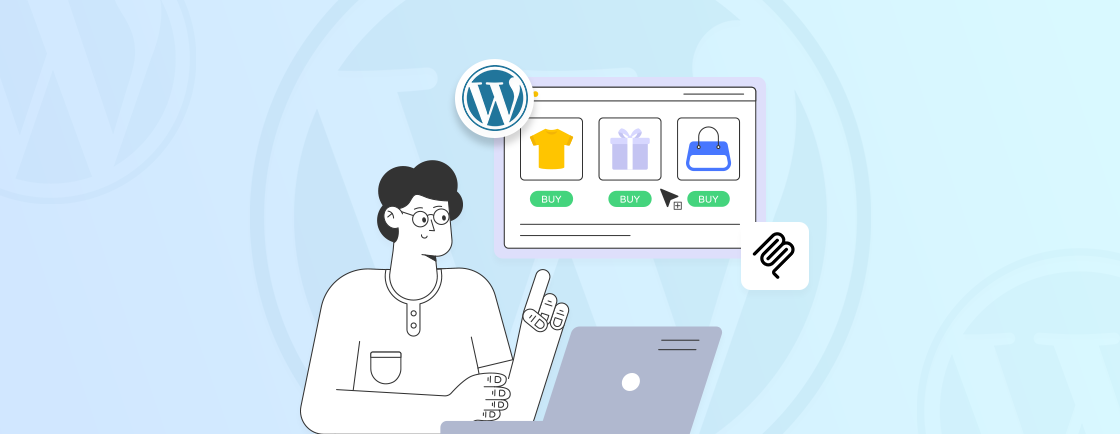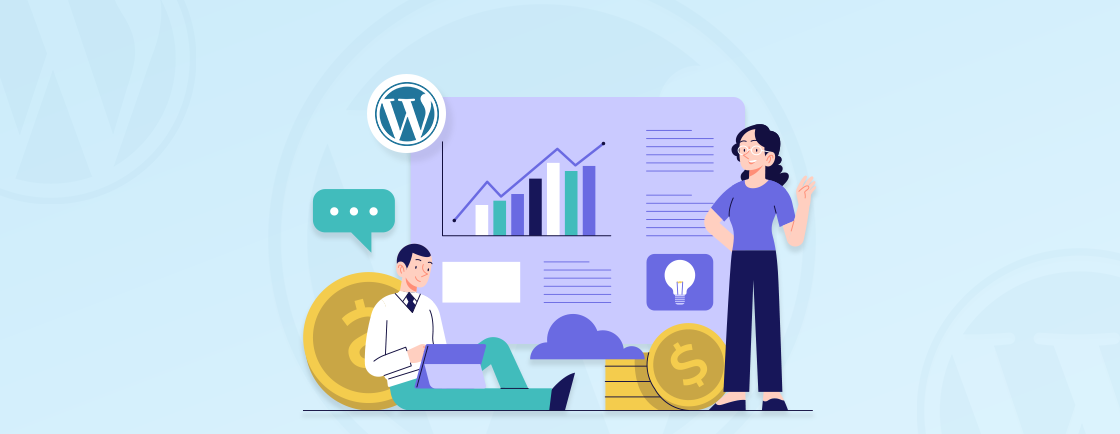Table of Contents
No matter if you are running a business, are a blogger, or are an individual with dazzling skills, having an online presence has become a necessity to reach out to a global audience and unlock higher success possibilities.
WordPress, one of the most popular content management systems tools, powers a significant portion of the internet. However, many website owners often underestimate the importance of maintaining their WordPress sites regularly.
In this blog, we will explore the risks associated with ignoring WordPress maintenance and how this oversight can impact the performance, security, and longevity of WordPress sites.
Introduction to WordPress Maintenance
WordPress is renowned for its user-friendly interface, versatility, and extensive range of themes and plugins. These features make it a top choice for website owners.
But while creating a WordPress website is relatively simple, maintaining it is an ongoing responsibility. WordPress maintenance involves a series of tasks aimed at ensuring your site runs smoothly, securely, and efficiently.
These tasks include updating the WordPress core, themes, and plugins, as well as more complex responsibilities like backing up your website, performing regular WordPress health checks, and implementing measures to safeguard the site.
Role of WordPress maintenance
The role of WordPress maintenance cannot be overstated. WordPress is a must for optimal performance and seamless functioning of your website. Routine maintenance boosts security, increases speed, and offers a great user experience. Here are some essential aspects of WordPress maintenance:
1. Security
Regular updates and security checks are essential to protect your WordPress site from hacking and malware. Ignoring these updates can leave your website vulnerable to cyberattacks, potentially resulting in data breaches and damage to your reputation.
2. Performance
Outdated themes or plugins can slow down your site, impacting both user experience and search engine rankings. Regular WordPress maintenance tasks, such as optimizing databases, compressing images, and clearing the cache—can greatly improve your website’s speed and overall performance.
3. Content Freshness
Consistently updating content is essential to engage your audience and maintain your site’s relevance. Ignoring this aspect can result in a decline in visitor numbers and decreased SEO rankings.
4. SEO
Search engine optimization is critical for driving organic traffic to your website. Neglecting SEO practices in your maintenance routine can lead to a drop in search engine rankings and decreased visibility.
5. Backups
Regular WordPress backups are your safety net in case of data loss or system failures. Failing to maintain backups can result in irreversible data loss in the event of a technical glitch or cyberattack.
In conclusion, conducting the right practices from the WordPress maintenance checklist is a necessity for website owners. The risks of ignoring WordPress maintenance are significant and can have far-reaching consequences.
From compromised security to poor performance and reduced visibility, neglecting these crucial tasks can harm your online presence and business. It’s essential to establish a regular maintenance routine or seek professional assistance to keep your WordPress site in top shape.
Importance of WordPress maintenance
WordPress has become a tool for website owners, offering a versatile platform to express ideas, promote businesses, and engage with audiences. However, the journey doesn’t end with setting up your WordPress website, it requires regular maintenance is vital for various reasons:
1. Safety
WordPress is a common target for cyberattacks due to its popularity. Failing to maintain your WordPress site regularly by updating the core, themes, and plugins can leave it vulnerable to security breaches.
These breaches can result in data theft, website defacement, and reputation damage. Regular WordPress maintenance, on the other hand, ensures that your website is equipped with the latest security patches to fend off potential threats.
2. SEO Benefits
Search engine optimization (SEO) is critical for attracting organic traffic to your website. Search engines like Google favor websites that are regularly updated and maintained.
Neglecting WordPress maintenance can result in a decline in search engine rankings, making your site less visible to potential visitors.
3. Content Freshness
To keep your audience engaged and returning for more, you need to regularly update and add new content. Moreover, there are several ways to put WordPress website in maintenance mode as neglecting can directly harm your brand’s credibility.
4. Data Backup
Accidents happen, and websites can crash or data can be lost due to various reasons. Overlooking to back up your data could mean losing valuable content or even your entire site in case of a technical glitch or hacking incident.
5. Cost Saving
Preventive maintenance is often more cost-effective than dealing with the aftermath of a compromised or broken website. The cost of recovering from a cyberattack, fixing a hacked website, or rebuilding a site from scratch can be much higher than investing in routine maintenance.
Regularly updating WordPress core, themes, and plugins, monitoring site performance, and implementing security measures should be seen as essential steps in safeguarding your website’s integrity and ensuring its long-term success.
Common Risks of Ignoring WordPress Maintenance
To avoid the risks of ignoring WordPress maintenance, address the common risks associated with neglecting your website. In order to tackle security vulnerabilities, performance issues, and compatibility problems, thorough maintenance is essential. Identifying and resolving these challenges will ensure a well-functioning and secure WordPress website.
1. Security Vulnerabilities
Neglecting to update your plugins and themes can leave your site vulnerable to security risks. Hackers can exploit weaknesses in outdated software. Weak passwords make it easier for hackers to gain access to your WordPress admin panel.
There are several WordPress security checks such as setting strong passwords with a combo of letters, numbers, and special characters you consider for a robust security wall. Malware infections can cause code injections, website defacement, and phishing attacks.
Secure your site with SSL certificates and two-factor authentication to reduce the risk of security threats. Don’t ignore WordPress maintenance! Take action now to protect your online presence and business.
2. Performance Issues
It’s important to regularly optimize and clean up your WordPress website to prevent performance issues. Get rid of all unnecessary plugins, and keep only what’s essential for functionality.
Optimize files included in the WordPress media library by compressing them so that they don’t take too long to load. Use caching mechanisms, like browser caching or server-side caching, to improve page load times.
Even if you have a well-maintained WordPress website, you might still experience performance problems due to external factors like hosting constraints or traffic spikes. Consistent monitoring and maintenance can help with any arising issues.
3. Compatibility Problems
Compatibility issues on WordPress sites can be a real pain! Themes, plugins, and even the WordPress core itself may not be compatible with each other. This can lead to common errors on WordPress, including for broken layouts, missing features, and limited functionality.
Plus, there may also be additional unique challenges. When you’ve missed a factor while choosing WordPress hosting providers, then it might result in certain unsupportive components or require extra configuration steps.
To ensure smooth operation of your WordPress site, stay informed about compatibility issues and address them promptly. Keep it running smoothly and securely by finding and accessing error logs.
4. Website Downtime
Website downtime can hurt your SEO rankings. Search engines favor sites that are always available, so if your website goes offline often, search engines may lower its ranking. This makes it harder for customers to find you.
It can also damage customer trust and loyalty. If visitors are constantly met with an unreliable website, they’ll get frustrated and look for a dependable alternative. This could lead to a lack of repeat customers and slow down business growth.
To prevent this, you need to prioritize regular maintenance and conduct uptime WordPress monitoring. Updates, faster servers, and regular data backups will help you avoid downtime. Invest in proper maintenance and your website will run smoothly with no user issues and no missed opportunities.
5. Loss of Data
Every WordPress website begins as a canvas for creative expression, a platform to share ideas, products, or services with the world. However, as your website evolves and expands, its maintenance becomes a critical aspect of its longevity and success. Ignoring the necessary upkeep can lead to a cascade of issues, and one of the most dire consequences is the loss of data.
Your WordPress website contains user data, including meticulously crafted blog posts, customer information, media files, and much more. This data is the lifeblood of your online presence, and the thought of losing it is a nightmare for any website owner.
Without a regular maintenance regimen that includes data backups, your website is vulnerable to potential disasters. Technical glitches or server failures can strike at any moment, resulting in data loss that can be both extensive and devastating.
The ramifications of data loss are far-reaching. It not only disrupts your online operations but also damages your reputation and trustworthiness in the eyes of your audience. It can lead to legal complications, especially if customer data is compromised. Moreover, the painstaking effort that went into creating your website’s content may be lost forever.
6. Negative Impact on User Experience
Sluggish loading times are a common consequence, as outdated themes and plugins, left unattended due to neglected maintenance, can cause frustration among users who expect swift load times in today’s fast-paced digital world.
Furthermore, broken functionality is a risk. WordPress, themes, and plugins release updates to enhance compatibility, improve features, and address bugs.
Neglecting these updates can lead to malfunctioning website features, causing confusion and dissatisfaction among visitors. Mobile responsiveness issues are another concern. Given the increasing usage of mobile devices, your website’s ability to adapt to different screen sizes is crucial.
Regular content updates are essential to keep users engaged and informed. Neglecting these updates can result in outdated information, undermining the credibility of your website and causing visitors to lose interest.
Thus, ignoring WordPress maintenance can significantly compromise the user experience, ultimately driving visitors away and diminishing the success of your online presence.
Best Practices for WordPress Maintenance
To ensure the smooth functioning and security of your WordPress website, it is essential to implement effective maintenance practices. In this section, discover the best solutions and practices for WordPress maintenance. Learn about the importance of regular backups and updates, the significance of monitoring and troubleshooting, and the essential security measures to protect your website.
1. Regular Backups
Scheduled backups are your safety net in case of data loss or unforeseen issues. Use reliable backup plugins or services to automatically backup your website regularly, including both the database and files. Store backups in secure offsite locations to ensure data recovery in case of server failures or cyberattacks.
2. Software Updates
Keep WordPress core, themes, and plugins up to date. Regularly check for updates and apply them promptly. These updates often include security patches, bug fixes, and feature improvements, ensuring your website remains secure, functional, and optimized.
3. Security Enhancements
Implement security plugins and measures to safeguard your website from threats. Consider using a firewall, setting strong passwords, and enabling two-factor authentication. Regularly monitor security logs and scan for malware to detect and address vulnerabilities promptly.
4. Content Optimization
Maintain your website’s content by updating and refreshing it regularly. Stale content can deter visitors and harm your SEO rankings. Ensure that images are optimized for faster loading times and that your content is structured for readability and SEO effectiveness.
5. Performance Monitoring
Regularly assess your website’s performance using tools like Google PageSpeed Insights or GTmetrix. Address issues related to slow loading times, broken links, and other performance bottlenecks. Optimize images, leverage browser caching, and employ content delivery networks (CDNs) as needed to enhance website speed and user experience.
Incorporating these best practices into your WordPress maintenance routine will help keep your website secure, functional, and user-friendly. Prioritize these tasks to ensure the long-term success and reliability of your WordPress site.
Conclusion
WordPress, with its user-friendly interface and extensive features, is a popular choice for building websites. However, creating a WordPress site is just the beginning of the journey. Regular maintenance is the key to ensuring optimal performance, security, and longevity.
Neglecting WordPress maintenance poses a multitude of risks. From security vulnerabilities that can expose your website to cyberattacks, to performance issues that can drive visitors away, the consequences of ignoring maintenance are profound.
Eager to unlock your website’s full potential with strategic maintenance? Achieve optimal results with the maintenance services of our dedicated WordPress developers. Contact us today to get started!
FAQs About Ignoring WordPress Maintenance
What Happens If I Ignore WordPress Maintenance?
When you disregard WordPress maintenance, your website becomes susceptible to a range of issues:
– Security Vulnerabilities: Outdated themes, plugins, and core software can create security holes, making your website a target for hackers.
– SEO Decline: Neglecting content updates can harm your website’s SEO rankings, resulting in reduced visibility.
Can I Skip WordPress Maintenance Occasionally?
While it may be tempting to skip maintenance occasionally, it’s not advisable. Ignoring maintenance, even infrequently, can lead to the accumulation of risks over time:
– Accumulating Risks: Skipping maintenance occasionally can lead to the accumulation of risks over time, potentially resulting in more significant issues.
– Regular Maintenance: Regular maintenance is essential for the long-term health and security of your website.
Is WordPress Maintenance Time-Consuming?
WordPress maintenance doesn’t have to be excessively time-consuming. By adopting the right tools and practices, you can streamline the process:
– Streamlining Maintenance: With the right tools and practices, WordPress maintenance doesn’t have to be overly time-consuming.
– Automated Solutions: Automated backups and updates can reduce the time required for maintenance.
– Early Issue Detection: Routine monitoring can catch problems early, saving you time and ensuring a secure and smoothly operating website.
Create with WordPress CMS
Build flexible and scalable websites using WordPress's powerful content management system.





